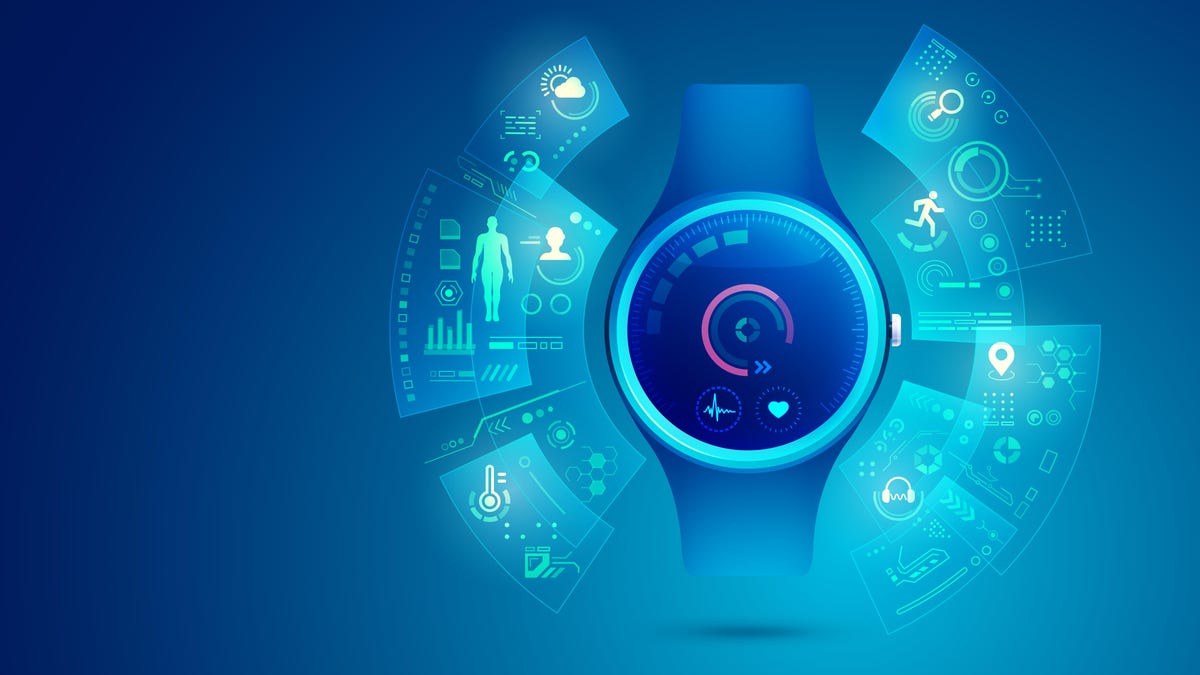 Why You Can Trust CNET
Why You Can Trust CNET The FDA Wants to Remind You That Your Smartwatch Can't Measure Blood Sugar Yet
Devices that claim to give you glucose information without getting under your skin are unauthorized and potentially harmful.

In a warning posted to its website Wednesday, the US Food and Drug Administration reminded consumers that there's no FDA-cleared smartwatch or ring that can measure your blood glucose levels.
It also said to avoid any wearable that claims it can, and report it if you've used one. For people with diabetes who rely on accurate blood glucose measurements, false glucose information can have dangerous consequences, such as leading someone to take the wrong dose of insulin.
The FDA didn't name any specific companies marketing their products as being able to accurately measure glucose, which is also called blood sugar. Instead, the FDA called attention to devices that claim to track blood glucose non-invasively, which may be "manufactured by dozens of companies and sold under multiple brand names."
The agency was careful to distinguish smartwatches or smartrings from glucose-tracking products that "pierce the skin," which would include the sensors and continuous glucose monitoring devices that people with diabetes have been using for years to manage their blood sugar. Recently, this biosensor technology has started to move into mainstream wellness tracking, but still with regulatory clearance for specific uses or marketing.
No major smartwatch manufacturers -- including the likes of Apple, Garmin, Google and Samsung -- claim to be able to measure blood glucose from your wrist. There have been some reports that Apple is working on a non-invasive way to get blood glucose information directly from its smartwatch, as well as rumors about Samsung, but this feature hasn't yet seen the light of day (or your wrist with FDA clearance).
Why did the FDA issue the warning?
In addition to approving drugs and medications, the FDA regulates and monitors a swath of consumer products and technologies that people use for health or wellness purposes. When it comes to consumer technology like smartwatches, the FDA clears companies to sell their products with specific purposes or under certain claims. (FDA approval for medical devices or purposes is a completely different thing, which is why it's important to take any health data that you get from consumer tech with a grain of salt.)
In its post this week, which didn't name any specific products, the FDA said it became aware of some "unauthorized products" being marketed to people.
"The agency is working to ensure that manufacturers, distributors and sellers do not illegally market unauthorized smartwatches or smart rings that claim to measure blood glucose levels," the regulatory agency said. It added that it will "keep the public informed" if new information becomes available.
Read more: What to Expect From Smartwatches in 2024: More AI, Health Features and More
Why is blood glucose monitoring on smartwatches a big deal?
Interest around blood glucose tracking in smartwatches has increased because it's one of the last health metrics left out of the wellness profile you can get from an everyday device. From your wrist alone, you can find out your heart rate, how active you were today and even how well you slept, but information about blood sugar has (so far) been limited to devices that can get under your skin.
Oura has a partnership with some glucose monitoring apps, which glucose trackers can use to paint a fuller picture about how their blood sugar may be connected to other health data. But the ring itself does not take blood glucose information.
We don't know when, or if, blood glucose tracking will become available in consumer smartwatches, smart rings or any other device that could measure blood glucose from above your skin. Reports about it are just that: reports.
Even if glucose monitoring does become available on a smartwatch, the way it would be marketed and used is another question. There's a difference between blood sugar tracking for people who rely on it for diabetes management, for example, and those who are interested in it for general wellness purposes. (There's less evidence for how useful it is for the latter.)
Taking a broader wellness look, interest in blood glucose levels may reflect a growing understanding of how certain behaviors -- like what we eat and how we sleep -- affect the way our body uses energy, which also affects how we feel. More research on the usefulness of glucose tracking in people who don't have diabetes is needed, but future technology could potentially provide insights to people who wouldn't otherwise have it.
More than one in three American adults have prediabetes, for example, a reversible condition where blood sugar levels are higher than normal. If unmanaged, prediabetes may turn into type 2 diabetes and raise the risk other health conditions. According to the US Centers for Disease Control and Prevention, 80% of people don't know they have it.

